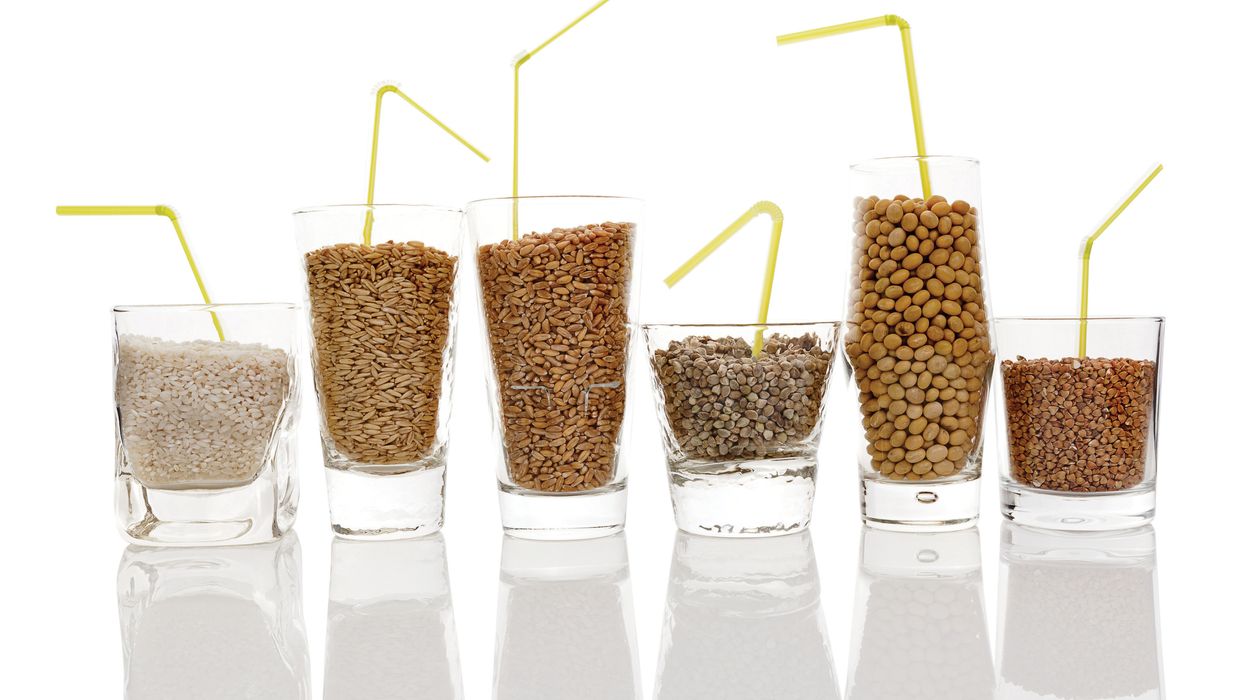No Dairy? No Problem: Decoding Nondairy "Milks" for Dancers
“Whole, low-fat, or skim?” The question of which milk to drink has gotten a little more complicated lately, with a wide variety of nondairy milks popping up in grocery stores. To find out which ones are worth your milk money, we had registered dietitian Monika Saigal answer some FAQs.
What’s in Nondairy Milk?
Nondairy milk (or, sometimes, “plant milk”) is generally made by soaking nuts, soybeans, or coconut flesh in hot water for a period of time, finely grinding or blending the softened mixture, and filtering out any remaining nut particles. Small amounts of oil, gums or thickening agents, and preservatives, like ascorbic acid (aka vitamin C), may be added to keep the texture smooth, like dairy milk, or preserve freshness and shelf life.
The most common nondairy milks are soy milk, almond milk, and coconut milk. But there are plenty others, each with its own nutritional and flavor profile, including: hemp milk, macadamia milk, rice milk, cashew milk, pea milk, oat milk, and rice milk.
Can Plant-Based Milk Replace Cow’s Milk?
“For vegans, dancers with a milk allergy, or anyone who prefers not to drink dairy, plant-based milk can substitute if chosen carefully,” Saigal says. Keep in mind that nutritional content varies a lot by brand and type of milk. Always check nutrition labels to choose what’s best for your needs.
 Thinkstock
Thinkstock
How Much Protein Is in Plant-Based Milk?
“Rice milk, coconut milk, almond milk, cashew milk, macadamia nut milk, hemp milk, and oat milk usually have little to no protein,” Saigal says. “Nuts and seeds are a decent source of protein, but by the time they’ve been processed into milk, there’s little protein left.” Saigal recommends choosing milk substitutes with protein content comparable to dairy milk: about 8 grams of protein per 1-cup serving. Soy milk and pea milk are good options. And some nut- or seed-based milks include added protein (usually pea protein)—check the labels!
Are Plant-Based Milks Good for My Bones?
Like dairy products, nondairy milks can be good sources of calcium and vitamin D, which are needed to build strong, healthy bones. “It’s important that dancers get calcium and vitamin D, especially during their preteen and adolescent years,” Saigal says. Choose milk substitutes with calcium and vitamin D levels at least equivalent to the amounts in cow’s milk (nearly 30 percent daily value of calcium and 25 percent daily value of vitamin D per serving).
What Are Other Nutrition Facts to Look For?
“Plant-based milk may be fortified with vitamin B12, which is helpful for vegan and vegetarian dancers,” Saigal says. “Pea milk (or milk with added pea protein) is a good source of iron, an important nutrient for dancers. Coconut milk is high in inflammatory saturated fat. If you like coconut milk, you don’t need to eliminate it from your diet, but be cautious not to consume many other foods high in saturated fat.”
Should I Buy Sweetened or Unsweetened?
Most unsweetened plant milks are low in added sugar, which is a #win. But, says Saigal, “they also tend to be low in carbohydrates, the main source of fuel for brains and muscles.” Therefore, dancers choosing unsweetened plant milk need
to get enough carbohydrates from other sources to keep their energy levels up and help with focus. “Unsweetened rice and oat milk are generally higher in carbs than other plant milks, but unless food allergies make these necessary, I wouldn’t recommend either because of their low protein content,” adds Saigal. “Some unsweetened plant milks are quite low in calories, which may not be best for busy dancers who find it challenging to eat enough during short breaks to support their activity level. Sweetened or flavored plant milk may help dancers with higher calorie and carbohydrate needs, like dancers who are still growing, some male dancers, or dancers recovering from an eating disorder.”
Should I Buy Organic?
Whenever possible, Saigal recommends consuming organic dairy products, which are produced without antibiotics or synthetic hormones. “Organic plant milks don’t offer much bump in health benefits compared to nonorganic, but there may be other reasons, like environmental concerns, that make it worth purchasing organic,” she says.
A version of this story appeared in the March 2018 issue of
Dance Spirit with the title “No Dairy? No Problem.”




